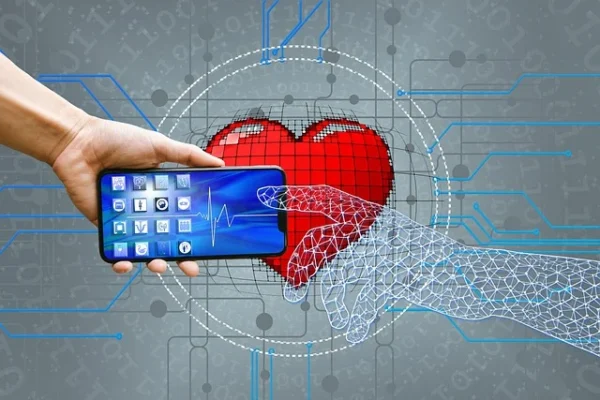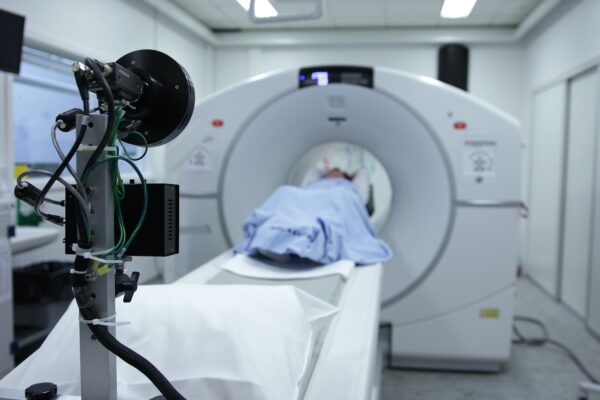Blockchain Applications in Healthcare: Enhancing Patient Data Security and Interoperability
Table of Contents
Introduction to Blockchain in Healthcare

Understanding Blockchain Technology
Blockchain is a decentralized and distributed ledger technology that records transactions across multiple nodes in a secure and transparent manner. Each block in the chain contains a cryptographic hash of the previous block, ensuring the integrity of the data.
Importance of Patient Data Security
Patient data security is paramount in healthcare to protect sensitive information such as medical records, personal details, and treatment history. Breaches in data security can lead to serious consequences, including identity theft, fraud, and compromised patient care.
Challenges in Healthcare Data Management
Traditional healthcare data management systems face numerous challenges, including centralized data storage, interoperability issues, and vulnerability to cyberattacks. These challenges hinder efficient data sharing and collaboration among healthcare providers.
How Blockchain Enhances Patient Data Security
Blockchain technology offers a solution to the security challenges faced by healthcare data management systems. By decentralizing data storage and implementing cryptographic techniques, blockchain ensures the integrity, confidentiality, and immutability of patient data.
Improving Interoperability with Blockchain
Interoperability is essential for seamless communication and data exchange between different healthcare systems and providers. Blockchain facilitates interoperability by providing a unified and secure platform for sharing and accessing patient data across disparate systems.

Use Cases of Blockchain in Healthcare
Blockchain has numerous applications in healthcare, including electronic health records (EHRs), supply chain management, telemedicine, and clinical trials. Examples include platforms like Medicalchain, which use blockchain to secure and share medical records with patients’ consent.
Future Trends and Developments
The future of blockchain in healthcare looks promising, with ongoing developments aimed at addressing scalability, privacy, and regulatory challenges. Integration with emerging technologies like artificial intelligence (AI) and Internet of Things (IoT) is expected to further enhance the capabilities of blockchain in healthcare.
Regulatory Considerations

Regulatory compliance is a key consideration in the adoption of blockchain in healthcare. Organizations must ensure compliance with data protection regulations such as the Health Insurance Portability and Accountability Act (HIPAA) and the General Data Protection Regulation (GDPR).
Benefits for Healthcare Providers and Patients
Blockchain offers several benefits for both healthcare providers and patients, including improved data security, streamlined processes, enhanced transparency, and greater patient control over their health information. These benefits lead to better healthcare outcomes and patient satisfaction.
Implementation Challenges
Despite its potential, implementing blockchain in healthcare faces challenges such as scalability, interoperability, cost, and resistance to change. Overcoming these challenges requires collaboration among stakeholders and investment in infrastructure and training.
Case Studies of Blockchain Adoption
Conclusion
In conclusion, blockchain technology holds immense potential for transforming healthcare by enhancing patient data security and interoperability. While challenges remain, the benefits of blockchain adoption in healthcare are undeniable, paving the way for a more efficient, secure, and patient-centric healthcare system.

FAQs
1. How does blockchain ensure the integrity of patient data? Blockchain ensures the integrity of patient data through its decentralized and immutable nature. Each transaction is recorded on multiple nodes in the network, making it virtually impossible to alter or tamper with the data without detection.
2. What are some real-world applications of blockchain in healthcare? Real-world applications of blockchain in healthcare include electronic health records (EHRs), supply chain management, telemedicine platforms, and clinical trials management systems.
3. How does blockchain improve interoperability in healthcare? Blockchain improves interoperability by providing a secure and standardized platform for sharing and accessing patient data across disparate healthcare systems and providers. This facilitates seamless communication and collaboration among healthcare stakeholders.
4. What are the regulatory considerations for implementing blockchain in healthcare? Regulatory considerations for implementing blockchain in healthcare include compliance with data protection regulations such as HIPAA and GDPR, ensuring patient consent and privacy, and addressing legal and ethical concerns related to data ownership and liability.
5. What are the challenges of implementing blockchain in healthcare? Challenges of implementing blockchain in healthcare include scalability, interoperability, cost, regulatory compliance, and resistance to change. Overcoming these challenges requires collaboration among stakeholders and investment in infrastructure and education.
